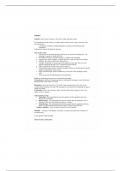Semiotics is the science of signs, or the study of signs and sign systems
It is needed because the media is a complex and powerful system of signs, based on codes
and conventions.
it is therefore a method of understanding how meaning is both produced and
transmitted
Originated by linguist Ferdinand de Saussure
How do signs work?
They operate on the basis that signs stand in for, or represent something else – the
meaning or concept to which they refer.
According to Saussure, all signs must have a signifier and a signified.
signifier: The visible, tangible, or audible aspect of a sign that carries the meaning.
signified: The thing or idea that the sign refers to.
example: The gesture of rose-giving can be understood as a sign. The rose is the
signifier signifying the man’s love or attraction for the beloved.
Signs communicate through codes and conventions.
Understanding signs requires cultural knowledge of these conventions (knowing what
might be suggested by certain codes).
Signs operate through systems of difference (words don’t mean anything on their
own).
They also operate through denotation and connotation.
Codes are standardised formulae for communicating meaning.
Conventions are methods of organising signs to communicate meaning in ways that become
habituated and widely shared over time.
Denotation is the most obvious level on which a sign communicates and it refers to the
common-sense meaning of the sign. This meaning can be expressed by explaining the sign as
simply as possible.
Connotation refers to the emotions, values, and associations that a sign gives rise to in a
reader, viewer, or listener.
Different kinds of signs:
Iconic sign – the relationship between the signifier and the signified is based on
likeness or resemblance.
Indexical sign – The relationship between the signifier and the signified is one of
indication, direction, measurement, sequence, or caution.
Symbolic sign – The relationship between the signifier and the signified is arbitrary
(there is no natural link) and in based on culture, context, and convention.
arbitrary signifiers – have no logical connection to their signified
Modality – A measure of the degree of certainty or realism associated with an instance of
communication.
iconic signs have high modality
When decoding a photograph:


